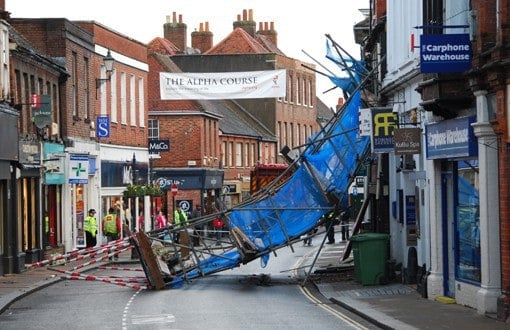
Refuse truck brings down scaffolding on busy street

Scaffolding lorry driver fined after scaffold crane injures worker
 News sources have reported that a worker unloading scaffolding from a flatbed lorry was thrown from the vehicle and hit by its load of boards and tubes when it overturned.
Martin Sapec, 54, of Edwardsville, Treharris suffered a broken pelvis and ankle in the incident at Bryntirion, Mountain Ash, on 15 August 2011.
Pontypridd Magistrates’ Court was told that Mr Sapec was helping delivery driver Wayne Ford to unload the scaffolding material while standing on the back of the lorry. The vehicle was fitted with a crane operated by Mr Ford, who failed to extend a stabilising outrigger from the vehicle designed to provide balance while the crane is in operation.
Because the crane was used without the extended outrigger, the lorry became unstable and tipped over, throwing Mr Sapec off. As he landed, some of the scaffold boards and tubes from the lorry fell on top of him.
Mr Sapec has been unable to work since the incident because of his injuries.
An investigation by the Health and Safety Executive (HSE) found Wayne Ford was responsible for the lorry, and was at fault for not using the crane and extending outrigger in the correct, safe manner.
Ford, of Shingrig Road, Nelson, pleaded guilty to breaching Section 7(a) of the Health and Safety at Work Act 1974. He was fined £1,000 and ordered to pay £1,000 in costs by magistrates on October 12.
After the hearing HSE Inspector David Kirkpatrick said: “Mr Sapec sustained serious injuries in this incident, and could easily have been crushed and killed by the lorry when it toppled over.
“Operators of vehicle mounted cranes must ensure the safety of people they are working with by using the equipment in the proper manner.
“Had the extending outriggers been use for their intended purpose then the incident could have been avoided. It was wholly preventable on that basis.”
Source: caerphillyobserver.co.uk
News sources have reported that a worker unloading scaffolding from a flatbed lorry was thrown from the vehicle and hit by its load of boards and tubes when it overturned.
Martin Sapec, 54, of Edwardsville, Treharris suffered a broken pelvis and ankle in the incident at Bryntirion, Mountain Ash, on 15 August 2011.
Pontypridd Magistrates’ Court was told that Mr Sapec was helping delivery driver Wayne Ford to unload the scaffolding material while standing on the back of the lorry. The vehicle was fitted with a crane operated by Mr Ford, who failed to extend a stabilising outrigger from the vehicle designed to provide balance while the crane is in operation.
Because the crane was used without the extended outrigger, the lorry became unstable and tipped over, throwing Mr Sapec off. As he landed, some of the scaffold boards and tubes from the lorry fell on top of him.
Mr Sapec has been unable to work since the incident because of his injuries.
An investigation by the Health and Safety Executive (HSE) found Wayne Ford was responsible for the lorry, and was at fault for not using the crane and extending outrigger in the correct, safe manner.
Ford, of Shingrig Road, Nelson, pleaded guilty to breaching Section 7(a) of the Health and Safety at Work Act 1974. He was fined £1,000 and ordered to pay £1,000 in costs by magistrates on October 12.
After the hearing HSE Inspector David Kirkpatrick said: “Mr Sapec sustained serious injuries in this incident, and could easily have been crushed and killed by the lorry when it toppled over.
“Operators of vehicle mounted cranes must ensure the safety of people they are working with by using the equipment in the proper manner.
“Had the extending outriggers been use for their intended purpose then the incident could have been avoided. It was wholly preventable on that basis.”
Source: caerphillyobserver.co.uk Gemini Riteway falls into administration
New appointed Chairman for Deborah Services Limited (DSL)
 Mr May has also been appointed as non-executive Chairman of Deborah Services Limited (DSL), a Siteserv subsidiary that is one of the UK’s leading industrial services and scaffolding supply companies.
Commenting on his appointment, Brian Harvey, CEO of Siteserv said, “Martin’s appointment is a signal of the ambitious expansion plans we have for DSL and other Siteserv companies. His wealth of experience and industry relationships will support our business strategy to broaden our offering in the UK and internationally.”
Martin May said: “I’m delighted to be joining Siteserv’s board and to be appointed non-executive Chairman of DSL. Both companies have a track record of success that will provide robust platform for the next phase in their evolution. I look forward to pursuing this new challenge, and helping to influence a strategy that will bring about significant growth.”
Mr May worked for 10 years as CEO of Cape PLC, an international industrial services company catering to blue-chip clients in the energy and natural resources sectors. Under his leadership, Cape became a leader in its chosen markets and sectors, a constituent of the FTSE 250, and extended its footprint throughout the Middle East and Asia.
In his new role as non-executive Chairman of DSL, Mr May will be responsible for overseeing the execution and delivery of a strategy to broaden the company’s international footprint and range of services. Services currently provided by DSL include access scaffolding, insulation services, asbestos removal, protective coatings, passive fire protection, and industrial painting.
As Non-Executive Director at Siteserv, Mr May will also offer strategic insight to the other group businesses.
Martin May is a Chartered Management Accountant (FCMA) and a founder member and Fellow of the Institute for Turnaround Practitioners.
Let us know your thoughts about this story in the comments below.
Mr May has also been appointed as non-executive Chairman of Deborah Services Limited (DSL), a Siteserv subsidiary that is one of the UK’s leading industrial services and scaffolding supply companies.
Commenting on his appointment, Brian Harvey, CEO of Siteserv said, “Martin’s appointment is a signal of the ambitious expansion plans we have for DSL and other Siteserv companies. His wealth of experience and industry relationships will support our business strategy to broaden our offering in the UK and internationally.”
Martin May said: “I’m delighted to be joining Siteserv’s board and to be appointed non-executive Chairman of DSL. Both companies have a track record of success that will provide robust platform for the next phase in their evolution. I look forward to pursuing this new challenge, and helping to influence a strategy that will bring about significant growth.”
Mr May worked for 10 years as CEO of Cape PLC, an international industrial services company catering to blue-chip clients in the energy and natural resources sectors. Under his leadership, Cape became a leader in its chosen markets and sectors, a constituent of the FTSE 250, and extended its footprint throughout the Middle East and Asia.
In his new role as non-executive Chairman of DSL, Mr May will be responsible for overseeing the execution and delivery of a strategy to broaden the company’s international footprint and range of services. Services currently provided by DSL include access scaffolding, insulation services, asbestos removal, protective coatings, passive fire protection, and industrial painting.
As Non-Executive Director at Siteserv, Mr May will also offer strategic insight to the other group businesses.
Martin May is a Chartered Management Accountant (FCMA) and a founder member and Fellow of the Institute for Turnaround Practitioners.
Let us know your thoughts about this story in the comments below. Safety & Access secures training contracts across the globe
“The training we have secured this week represents a major “thumbs up” to the all of the British scaffolding industry and the mostly very high standards that are delivered in the UK”.Safety & Access are also exploring the setting up of a dedicated major international partnership to deliver scaffolding skills and supervisory based training across the UAE and surrounding areas. For more information please see www.safetyaccess.co.uk
Simian Risk offer free scaffolding safety seminars
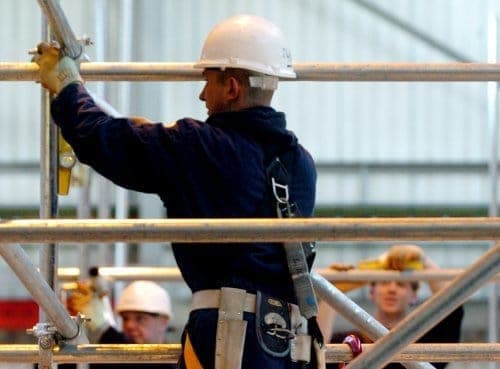 Work at height safety specialist Simian Risk is hosting two free Scaffolding Safety seminars at its Warrington headquarters.
The morning and afternoon courses on Friday, October 26, will focus on a variety of topics, including Management of Temporary Works and Scaffolding Rescue, with practical demonstrations in the firm’s 15,000sq ft training centre.
There will also be an NASC update, including advice on the forthcoming TG20:13 Scaffolding Guidance.
Simian Risk director Simon Hughes – widely recognised as one of the UK’s leading industry experts – said: “This is an excellent opportunity for people in the industry to get a free update on NASC Guidance, as well as advice and support on a range of issues.
Work at height safety specialist Simian Risk is hosting two free Scaffolding Safety seminars at its Warrington headquarters.
The morning and afternoon courses on Friday, October 26, will focus on a variety of topics, including Management of Temporary Works and Scaffolding Rescue, with practical demonstrations in the firm’s 15,000sq ft training centre.
There will also be an NASC update, including advice on the forthcoming TG20:13 Scaffolding Guidance.
Simian Risk director Simon Hughes – widely recognised as one of the UK’s leading industry experts – said: “This is an excellent opportunity for people in the industry to get a free update on NASC Guidance, as well as advice and support on a range of issues.
“The seminars are particularly targeted at scaffolding company owners, senior and middle managers at scaffolding contractors, HSE inspectors and any Health and Safety professionals working on construction and industry sites. “As well as presentations there will also be practical demonstrations which will give delegates a real-time perspective of how to deal with rescue situations. The TG20 Scaffolding Guidance manual is also undergoing a major rewrite in time for 2013, so we will be addressing some key issues which could be presented in the document.”The seminars run from 9.30am to 12pm and 12.30pm to 3pm. Tea and coffee will be served on arrival, with a free Hog Roast lunch. Simian Risk is one of the UK’s leading work at height safety and training specialists, working across the UK, Middle East and Far East with a range of blue chip access, construction, oil and gas and petrochemical companies. The seminars will be held at Simian Risk’s HQ at Wallis House, Birchwood Park, Warrington. For more information or to reserve a place call 0845 602 2418 or email [email protected]
Hero scaffolder tackles mugger at cashpoint
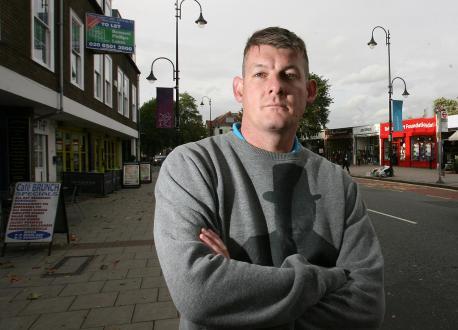
Rising river water wipes out scaffolding on bridge
 News sources have reported that scaffolding on the bridge in the centre of Milnsbridge, Huddersfield, West Yorkshire has partially collapsed as a result of rising river levels last night.
The bridge over the River Colne has been undergoing strengthening works and a partial road closure has caused traffic chaos.
The scaffold platform under the bridge has been made unsafe, though Kirklees Council says the damage is unlikely to cause delays to completion of the works.
Story Via: www.examiner.co.uk
News sources have reported that scaffolding on the bridge in the centre of Milnsbridge, Huddersfield, West Yorkshire has partially collapsed as a result of rising river levels last night.
The bridge over the River Colne has been undergoing strengthening works and a partial road closure has caused traffic chaos.
The scaffold platform under the bridge has been made unsafe, though Kirklees Council says the damage is unlikely to cause delays to completion of the works.
Story Via: www.examiner.co.uk
Let us know your thoughts in the comments below
Amazing scaffolding light show [Video]
We came across these cool videos by 1024 Architecture showing scaffolding in a different light… let us know what you think.
Scaffolding in a different light
Video#1: 60m long by 12m high, made out of scaffolding structure and semi-transparent screens, this video mapping was built on the Pont St Louis in Paris, close by Notre Dame church. It was running through their custom made video mapping software, which allowed them to draw the architectural lines live on location, directly on the structure. Video#2: For the Nuit Blanche 2010 festival, 1024 Architecture designed a 20 ton scaffolding structure built on top of the Saint Louis Bridge, downtown Paris. The show consisted of a 12 minutes looping audio reactive visual set. More info on 1024architecture.net and 1024d.wordpress.comScaffolders keep safe and “clip on”
Safety Moment – Working at Height from Stork Technical Services on Vimeo.
The message that you are about to hear is relevant to all offshore employees. The message about the importance of ‘clipping on’ when working at height comes across very strongly and we ask all of you to take some time out to watch this film. Please take this message, and the learnings that you are about to hear from Tim, and apply them every day, consistently. Make sure that the unthinkable doesn’t happen to you.
Via: www.storktechnicalservices.com
Let us know your thoughts about this video in the comments below.
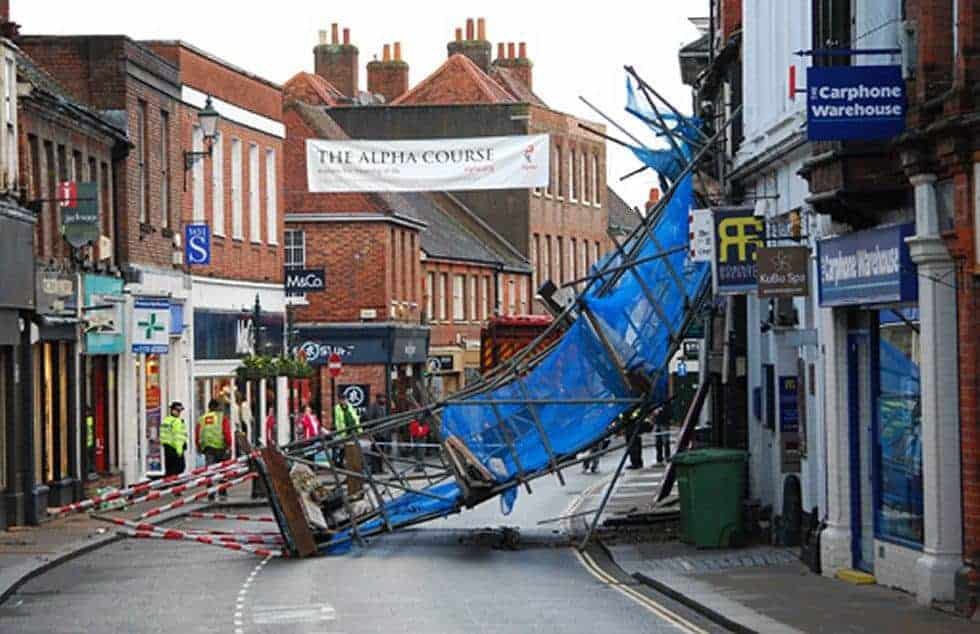



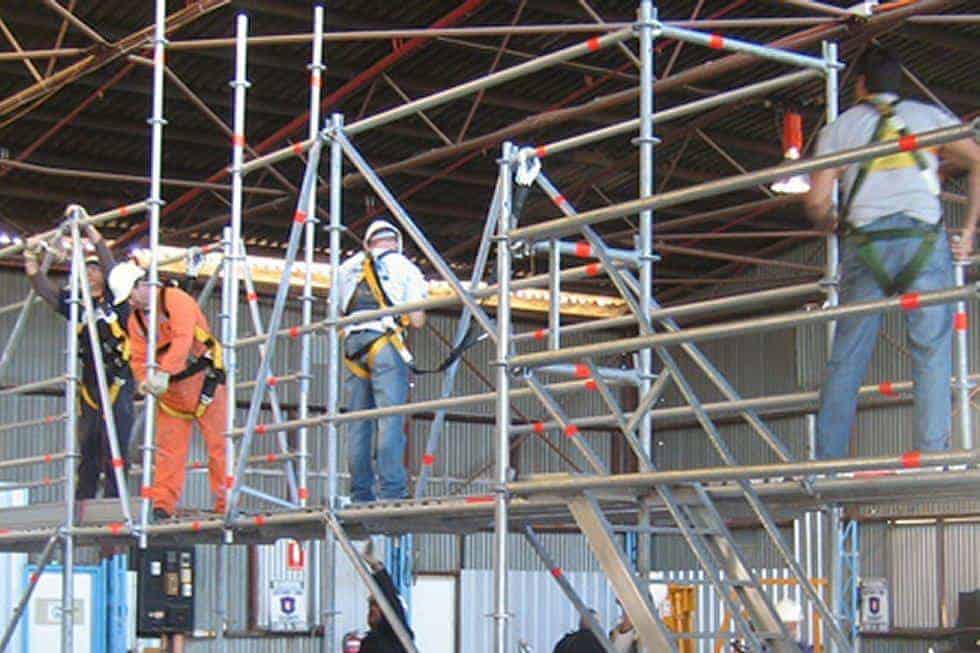
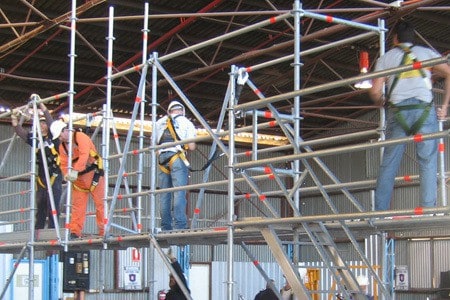
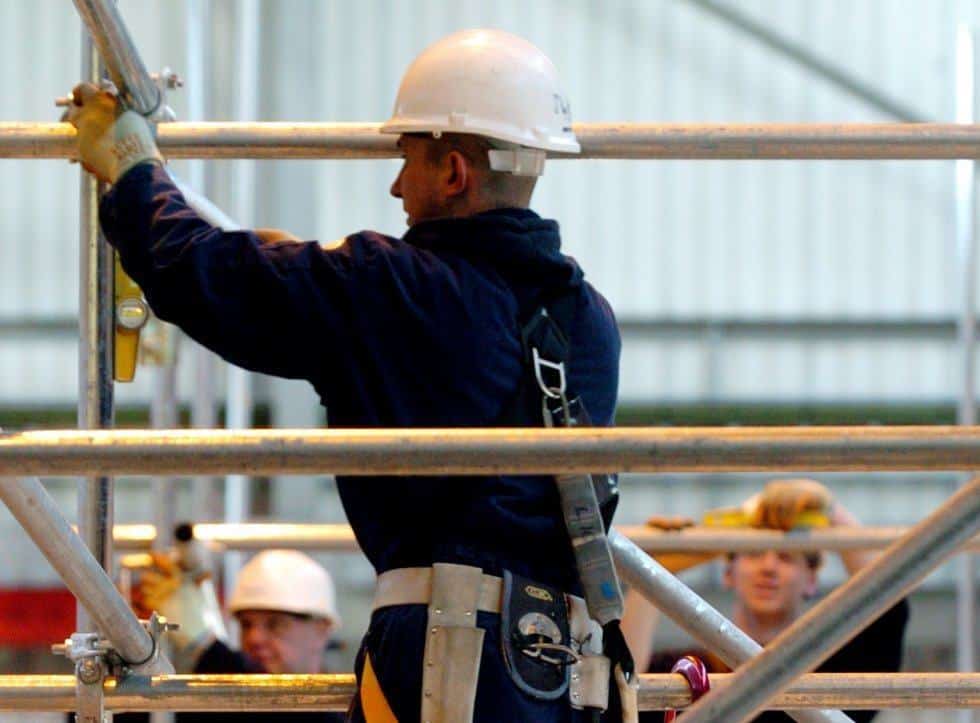

![Amazing scaffolding light show [Video] Amazing scaffolding light show [Video]](https://scaffmag.com/wp-content/uploads/2012/09/scaffoldinglightshow-featured.png)


